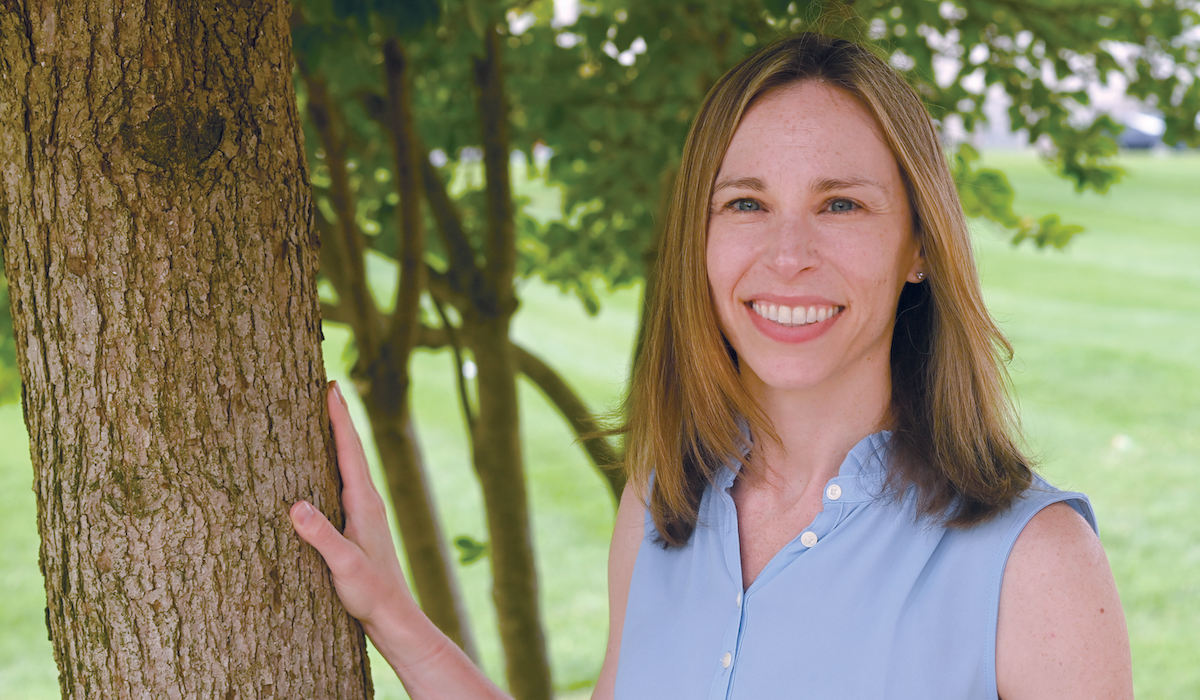

Assistant Professor of Psychology Abby Adler Mandel focuses on understanding cognitive factors associated with depression and suicide, such as dysfunctional beliefs, attentional fixation, and problem-solving deficits, as well as how we can change these factors to produce better treatment outcomes and prevent suicide. Mandel serves as lab director for the Depression and Suicide Cognitions Lab and supervises the University’s Counseling Center.
The University does care about students and student well-being. With the pandemic, I think there’s been more distress overall across the population. Students have been more vocal about the difficulties they’re experiencing. It’s a really good thing. The more that they share with me, the more I can work with them and be flexible and understanding.
There’s much more value placed on it and how we view psychology. I teach a research methods class here and one of my goals is to help students realize psychology is a science. It is based on evidence and data and how that is collected. As for the field itself, there’s an emphasis on individual experiences, maybe more so than historically. It’s about what are the factors that impact their experiences with depression and all the life experiences that contribute to that.
This study involves recruiting students primarily from our psychology research pool. They fill out some information about their current history and suicidal thoughts and answer self-report questionnaires on our online platform. We have them answer questions on their smartphones multiple times a day. They get a morning survey about their sleep the night before and random surveys throughout the day with questions like, “How much have you been thinking about the future and if it’s worthwhile for you? How much have you been thinking about your negative experiences?” We are measuring potential issues — fixation, rumination, hopelessness, or experiences that are unbearable. We’re trying to see how much they change from moment to moment and person to person.
When I started as a faculty member, I was given some money to be able to do some pilot projects. I aim to use this data to apply for grants from the American Foundation for Suicide Prevention. Some of the initial findings that we’ve had are that “the world is good and meaningful and needs me” and has succeeded with lower suicidal ideation.
When participants are answering these questions my hope is that they realize they’re not alone and it’ll resonate with them. Then we can help them and target ways to help them. Helping ask the right questions is rewarding in itself.
One, it helps us gain knowledge about this world that God has created for us. The other big part is helping people live these fulfilling lives they have to their greatest abilities, to listen to one another and engage in good conversations. Helping to form students into good citizens by asking good questions.
— M.P.